Paris 2024: Fujinami, unbeaten in 137 straight bouts, becomes Olympic champion
Thursday, August 8, 2024 - 23:10 By Ken Marantz

PARIS (August 8) -- There is domination and there is the way that Akari FUJINAMI (JPN) overwhelmingly puts away every opponent who stands before her on the mat. And at just 20, it looks to continue for some time to come.
Fujinami capped an unobstructed run to the Olympic gold at women's 53kg with her fourth straight win of the tournament by fall or technical fall, overwhelming Lucia YEPEZ (ECU) 10-0 in the final on Thursday at the Paris Olympics.
"It's the best! The Olympics is the best! Wrestling is the best!" said a jubilant Fujinami, who extended her current winning streak at home and abroad to 137 matches in a row dating back to her junior high school days.
In the other finals at a packed Champs de Mar Arena, the Greco competition concluded with Saeid ESMAEILI (IRI) winning Iran's second gold in two nights with a victory at 67kg, while Ukrainian-born Semen NOVIKOV (BUL) denied Iran a third by taking the 87kg gold for his adopted country.

For Fujinami, the final against Yepez, who became Ecuador's first-ever Olympic wrestling medalist, offered a challenge from the only non-Japanese opponent who has ever given the reigning world champion a hint of trouble.
In a second-round match at last year's World Championships in Belgrade, Yepez stunned Fujinami and the wrestling world by jumping out to a 5-0 lead. Fujinami bounced back and won the match by fall after building a 16-7 lead, but the seven points remain the most ever scored on her by a non-Japanese opponent.
Not only that, but the only non-Japanese to go the distance during Fujinami's streak (116 of the 137 wins are by fall or technical fall) was Yepez, in a 3-1 loss in the semifinals at the 2018 World Cadet (U17) Championships.
As such, Fujinami remained cautiously aggressive during the match, working the opponent nicknamed "The Tiger" around the mat to set up her lethal takedowns that came one after another. Whether single-leg or double, Fujinami got three in the first period, then ended the match at 3:37 with two more in the second period.
After the match, Fujinami exchanged a poignant hug with Yepez. "Thinking back to our last match, it motivated me in practice," Fujinami said. "She's one of the athletes who has inspired me. I wanted to convey my thanks to her."
Fujinami had the pleasure of winning the gold in front of her parents, with her father Toshikazu having the best seat in the house. He was in her corner at matside, ostensibly as a national team coach but more as her private mentor.
Toshikazu has been her coach since she started wrestling at age 4, even following her to Tokyo from their home in central Japan to take a coaching position when she enrolled at powerhouse Nippon Sports Science University (among her other coaches there is a four-time Olympic gold medalist Kaori ICHO).
The two share an apartment, with dad also filling the unfamiliar role of cook. They have their share of clashes, but the combination has been working on the mat. Their joy of success is mutual. Those were his arms she leaped into after her victory.
"There are times we've clashed and had our share of arguments, but if my father wasn't with me, I would not be here today," said Fujinami, whose mother and grandmother watched the Paris final in the stands. "He's the person I owe the most gratitude."
For the two-time world champion, a recent spate of injuries have been all that has kept her from piling up more wins and titles. She skipped the 2022 World Championships due to a foot injury and participated in no pre-Olympic tournaments this year after suffering a dislocated elbow and undergoing surgery in March.
"It's the greatest of feelings [to win the gold], and everyone talks about the winning streak and it may look like it was smooth sailing, but when I had surgery in March, there were times when I thought it might be impossible," Fujinami said.
"To get the gold medal today, I feel that everything that I went through seemed necessary, and the injury was an experience that led to this shining moment."
She also credited the large contingent of Japanese fans, friends and teammates who have supported her along the way.
"I absolutely know that I didn't fight with just my own power," Fujinami said. "The many people cheering me on and supporting me brought me here today. I feel this is a gold medal that we all fought for and we all won together."
Fujinami's last defeat came in the finals at the 2017 National Junior High School Championships, when she fell 7-2 to Umi ITO (JPN). She made her senior debut with a victory at the 2020 All-Japan Championships and won her first senior world title the following year.
For Yepez, making history for Ecuador caused her to become emotional on the medal podium.
"A lot of things came to my mind, like when I was 10 years old, I battled a lot for this result," she said. "We have very few resources. My mother worked all day to pay expenses. Maybe one time I will get the gold medal. But this girl who was 10 years old is now an Olympic medalist."

In the Greco 67kg final, Esmaeili, two years removed from a world U20 championship and less than a month after his 21st birthday, relegated Parviz NASIBOV (UKR) to a second straight silver medal with a second-period surge.
Nasibov fought off an arm throw to score a takedown in the first period before adding a passivity point to lead 3-0 at the break. Esmaeili struck back quickly in the second period, getting behind for a takedown within seconds, then went ahead on criteria with a passivity point. Like Nasibov, he was unable to get a turn from par terre.
Nasibov regained the advantage with a takedown, but Esmaeili stuffed a throw attempt for a 2-point exposure to lead on criteria 6-6. An unsuccessful challenge made it 7-6, which is how it ended as Esmaeili joined Greco 97kg champ Mohammadhadi SARAVI (IRI) as Iran's lone gold medalist in Paris.
“Thanks to God for achieving this medal," said Esmaeili, who defeated Tokyo Olympic champion Mohammadreza GERAEI (IRI) in a playoff to earn his ticket to Paris.
"If you follow wrestling you know how difficult it is, and in the last two years, it has also been difficult because I lost some relatives, and I withdrew from wrestling. I was able to put everything behind me and achieve this gold medal."
As for his new-found status as the rising star of Greco, Esmaeili commented, "It’s a big honor to be called 'a new talent,' and I’m humbled. I have to make more effort to win more medals.”
For Nasibov, there are deeper concerns than having to settle for a second silver medal as his country continues its defense against the Russian aggressor.
"It's hard to find the right words," he said. "While I feel joy, the people who defend my country, my family, are at war. I am sharing this precious medal with the people who defend our country."
 Semen NOVIKOV (BUL) dominated Alireza MOHMADIPIANI (IRI) in the 87kg final. (Photo: United World Wrestling / Amirreza Aliasgari)
Semen NOVIKOV (BUL) dominated Alireza MOHMADIPIANI (IRI) in the 87kg final. (Photo: United World Wrestling / Amirreza Aliasgari)
At Greco 87kg, Novikov had been competing in the shadow of compatriot and two-time Olympic medalist Zhan BELENIUK (UKR) when he decided to make a career move by changing his citizenship.
The 26-year-old became naturalized in Bulgaria in 2022, and two years later, ironically shared an Olympic podium with Beleniuk, albeit on a higher step after defeating Alireza MOHMADIPIANI (IRI) 7-4 in the final.
"I dreamed about this when I was a child to one day be an Olympic champion," Novikov said. "The dream has come true."
In the final, Novikov started his charge to the gold with a gut wrench from par terre for a 3-0 lead. He received a second passivity point in the second period and, while he wasn't able to convert, he kept continual pressure on Mohmadipiani and tacked on three stepouts.
"The final fight was very good for me," Novikov said, adding, "Yesterday was harder in the semifinal," referring to his 3-1 win over world champion David LOSONCZI (HUN).
Before becoming Bulgaria's first Olympic wrestling champion in 24 years, Novikov had already been quite productive for his adopted country. He won bronze medals at both the World and European Championships in 2023, and picked up international wins this year in Antalya and Budapest.

Beleniuk completes Olympic set with bronze
While it was not his actual goal coming into Paris, Beleniuk completed the set of Olympic medals when he won the bronze at Greco 87kg with a 3-1 victory over Arkadiusz KULYNYCZ (POL).
Beleniuk, the gold medalist in Tokyo and silver medalist at Rio 2016, got a gut wrench from par terre, then held out when Kulynycz had a second chance with a minute to go in the match.
"My main goal was to show a good result and medal," Beleniuk said. "Our Ukrainian athletes aren't just athletes who fight for some medals. We should spend the time here to share information about Ukraine because the war continues, and we should share support with our audience and partners in this war."
There will be no fourth Olympic medal for the 33-year-old two-time world champion, as he left his shoes on the mat after the match as the latest star of the sport announcing his retirement in this traditional way at the Games.
"For me, it's enough," Beleniuk said. "It's a good time to retire."
The other Greco 87kg bronze went to Turpal BISULTANOV (DEN), who could only manage a stepout on a throw attempt during a second chance at par terre, but it was enough for a 2-1 victory over Losonczi.
Bisultanov, the 2022 European champion who defeated Losonczi in the final of the 2023 Zagreb Open, became just the second Olympic medalist for Denmark since 1948 after Mark MADSEN (DEN) won a Greco silver at Rio 2016.
The bronze medals at Greco 67kg went to the finalists from last year's World Championships in Belgrade, Luis ORTA (CUB) and Hasrat JAFAROV (AZE), who both posted one-sided victories.
Orta, the Tokyo Olympic gold medalist at 60kg who won the world title in his move up to the next Olympic weight, will go home with a second Olympic medal after a dominant 7-0 victory over Slavik GALSTYAN (ARM).
As for whether he will try for a third medal, Orta responded, "First I simply want to enjoy my medal with my teammates and with my family, my son, and then I will think about Los Angeles [in 2028]."
Two-time reigning European champion Jafarov scored a takedown in the opening seconds and never let up, rolling to an 8-0 victory over Amantur ISMAILOV (KGZ) to add the Olympic Greco 67kg bronze to his world silver from last year and bronze from 2022.
At women's 53kg, Hyogyong CHOE (PRK) gave the DPR Korea its first-ever Olympic women's wrestling medal with a 10-0 victory over Annika WENDLE (GER), who could offer little resistance after suffering a knee injury early in the contest.
Wendle twisted her knee during a Choe takedown less than 20 seconds into the match. After an extended period of treatment, she continued, but to no avail. Choe did not attack the injured limb, but easily got behind on four straight takedowns to end the match at 1:36.
Qianyu PANG (CHN), the Tokyo silver medalist, took home the other bronze when she defeated Khulan BATKHYAG (MGL) by fall in a match that saw plenty of action despite lasting just 1:05.
Pang opened up with a double-leg takedown to the back for 4, and Batkhyag responded with a nice ankle pick for a takedown. But as she tried to lever Pang over, the Chinese suddenly reversed the situation and landed chest-to-chest on top of Batkhyag for a quick fall.
"I don't find anything regretful because I give it my all each and every time," Pang said of having to settle for a bronze. "I will regroup and continue to train because I love wrestling."
Day 4 Results
Freestyle
57kg
SF1: Rei HIGUCHI (JPN) df. AMAN (IND) by TF, 10-0, 2:14
SF2: Spencer LEE (USA) df. Gulomjon ABDULLAEV (UZB) by TF, 14-4, 2:43
86kg
SF1: Magomed RAMAZANOV (BUL) df. Aaron BROOKS (USA), 4-3
SF2: Hassan YAZDANI (IRI) df. Myles AMINE (SMR), 7-1
Greco-Roman
67kg
GOLD: Saeid ESMAEILI (IRI) df. Parviz NASIBOV (UKR), 6-5
BRONZE: Hasrat JAFAROV (AZE) df. Amantur ISMAILOV (KGZ) by TF, 8-0, 2:14
BRONZE: Luis ORTA (CUB) df. Slavik GALSTYAN (ARM), 7-0
87kg
GOLD: Semen NOVIKOV (BUL) df. Alireza MOHMADIPIANI (IRI), 7-4
BRONZE: Zhan BELENIUK (UKR) df. Arkadiusz KULYNYCZ (POL), 3-1
BRONZE: Turpal BISULTANOV (DEN) df. David LOSONCZI (HUN), 2-1
Women's Wrestling
53kg
GOLD: Akari FUJINAMI (JPN) df. Lucia YEPEZ (ECU) by TF, 10-0, 3:37
BRONZE: Hyogyong CHOE (PRK) df. Annika WENDLE (GER) by TF, 10-0, 1:36
BRONZE: Qianyu PANG (CHN) df. Khulan BATKHYAG (MGL) by Fall, 1:05 (6-2)
57kg
SF1: Tsugumi SAKURAI (JPN) df. Helen MAROULIS (USA), 10-5
SF2: Anastasia NICHITA (MDA) df. Kexin HONG (CHN) by Fall, 1:37 (2-7)



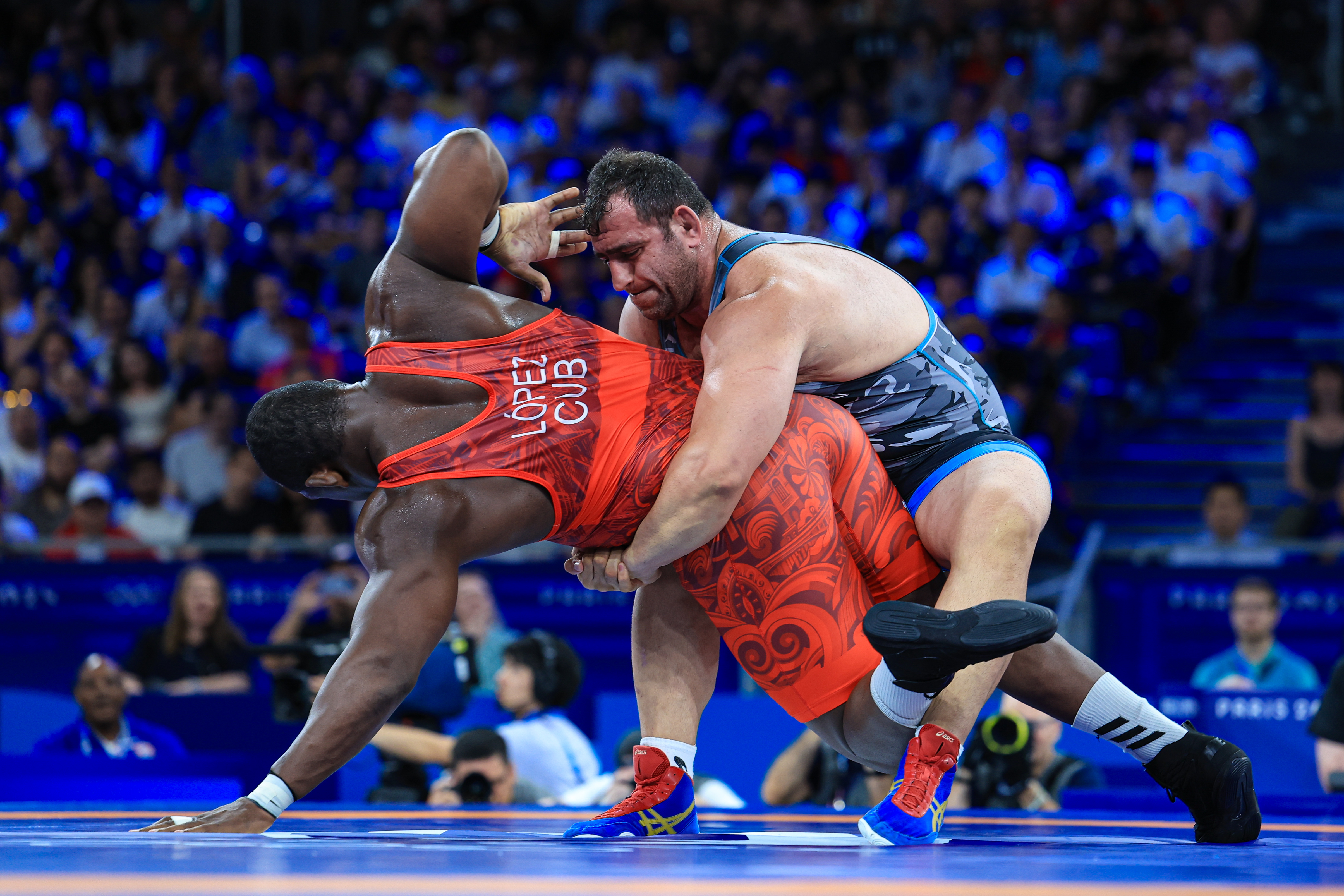
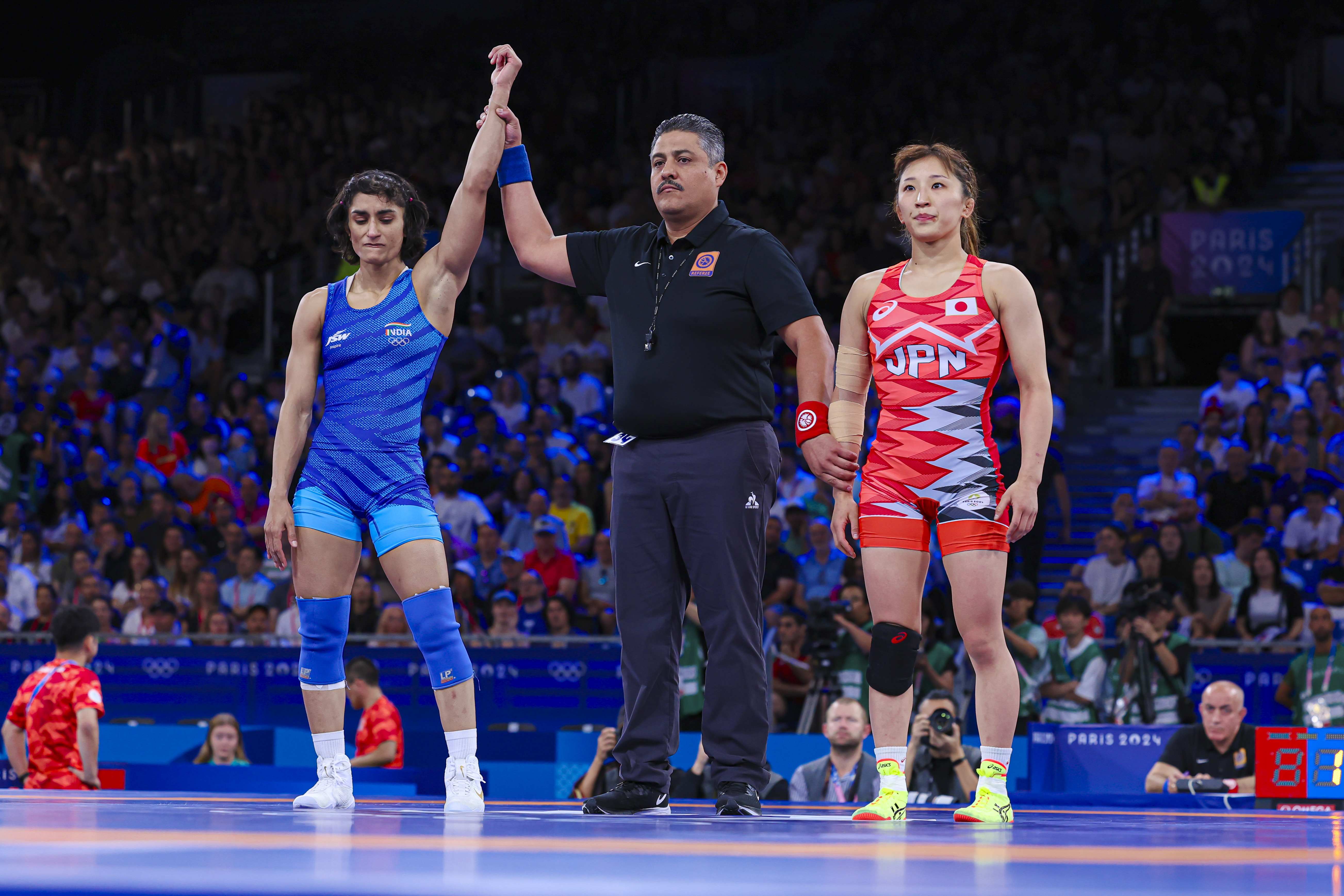
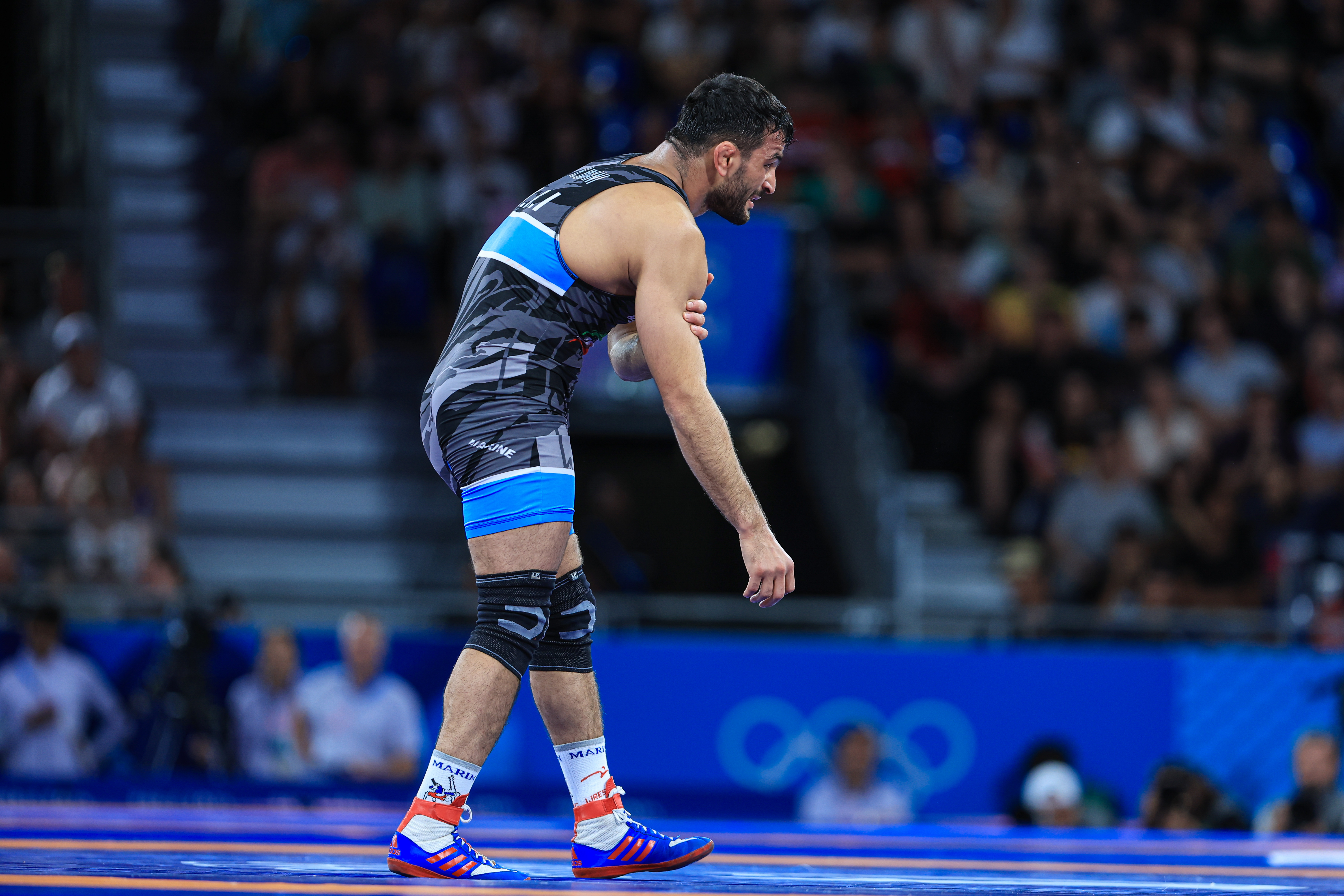




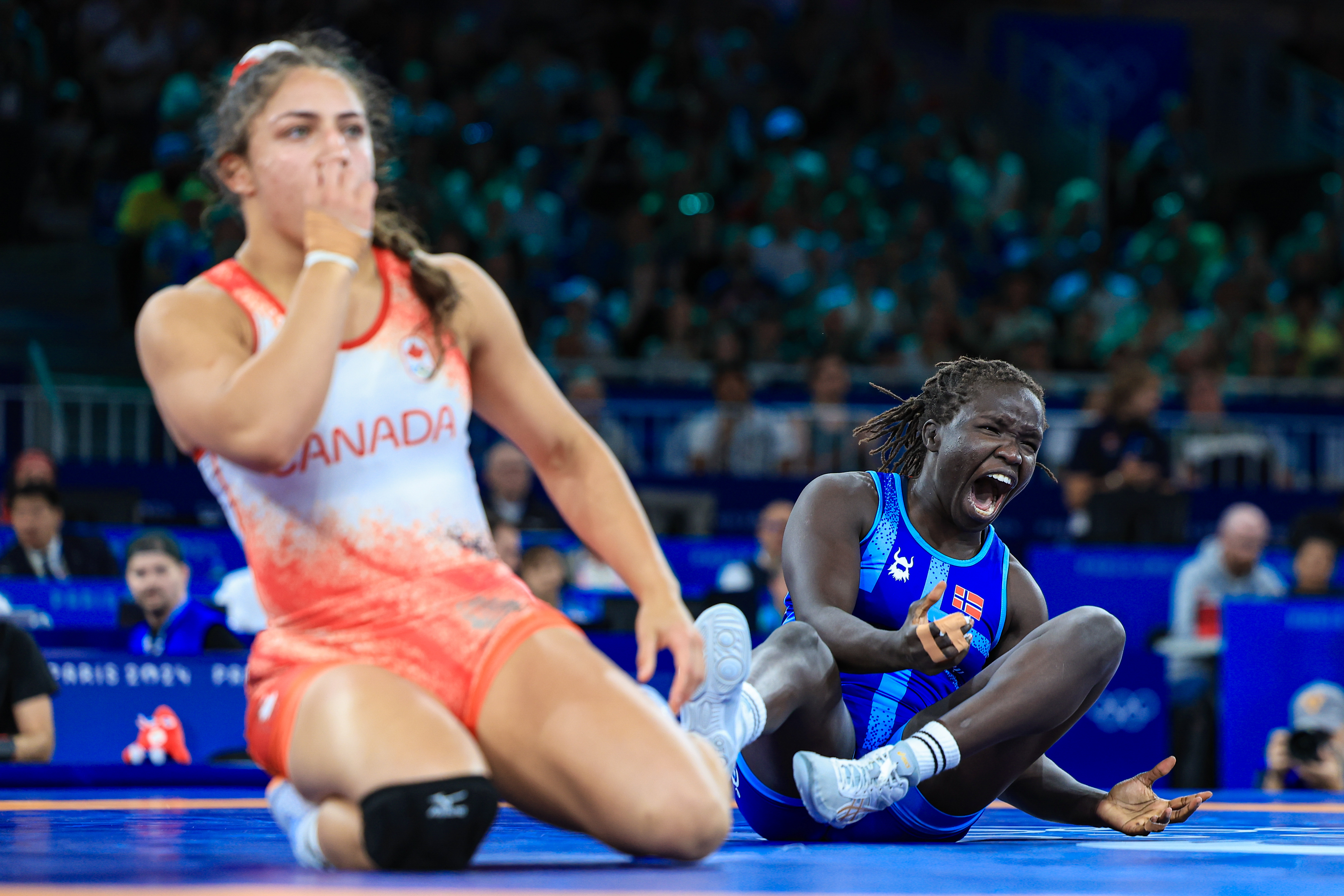


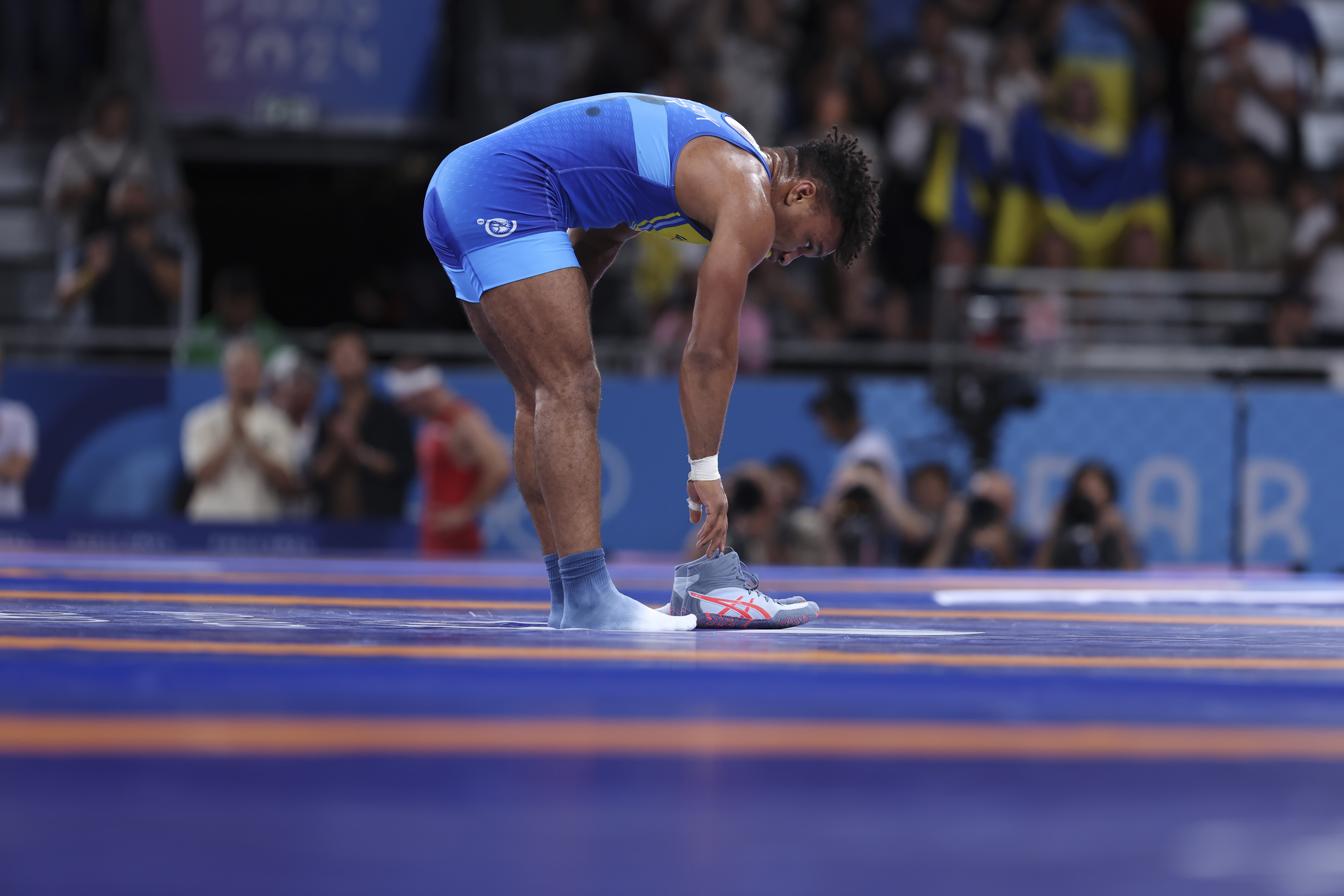
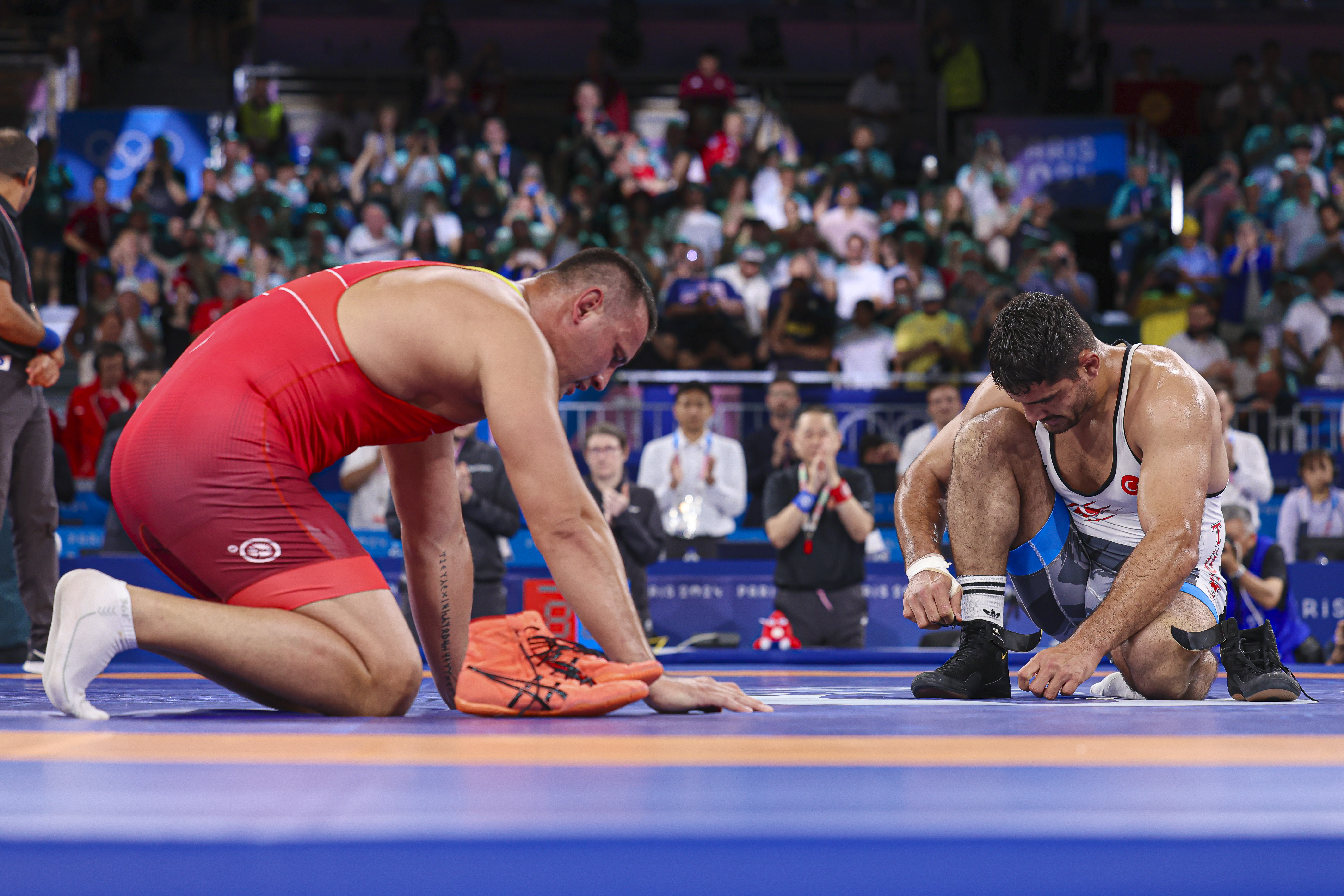
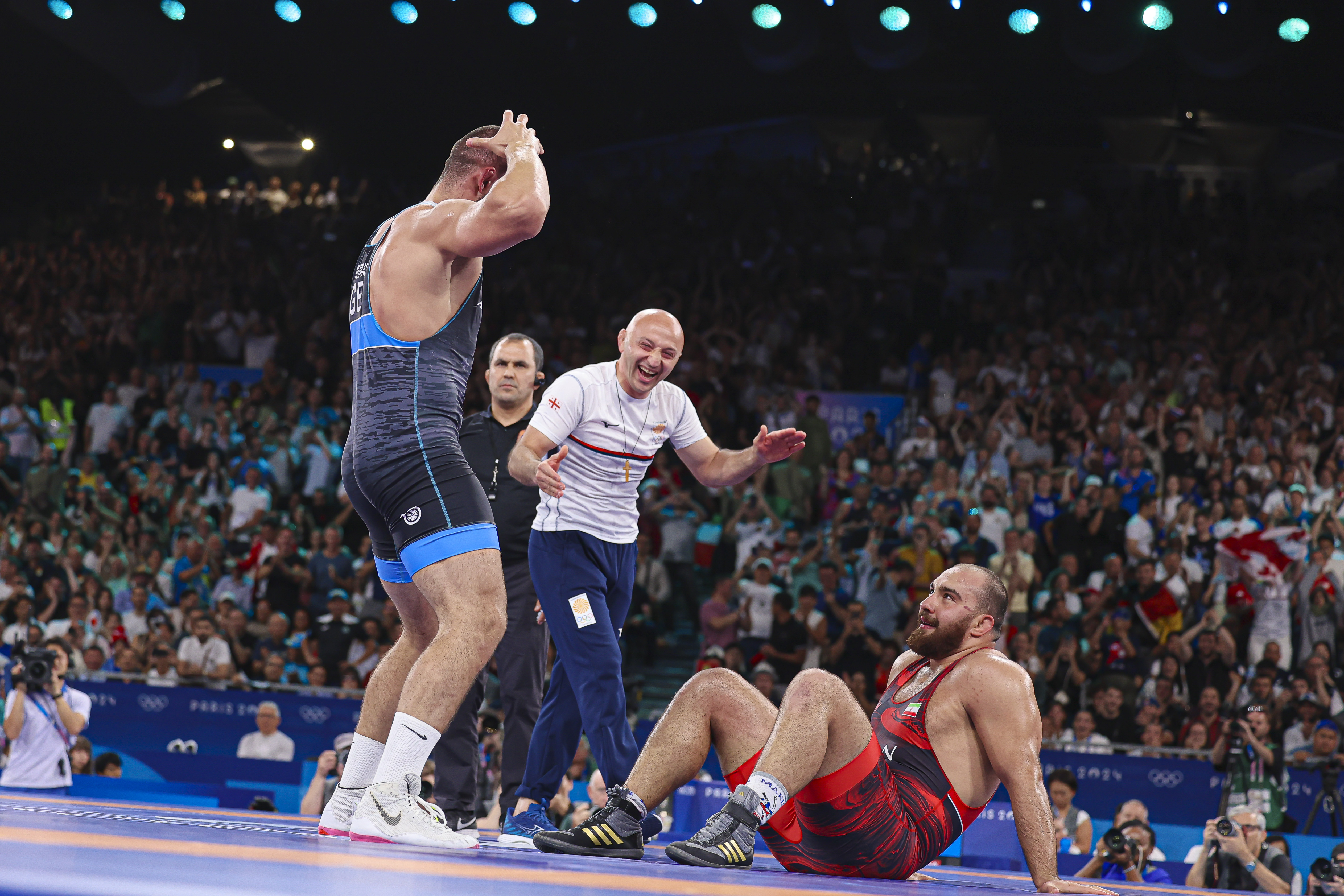

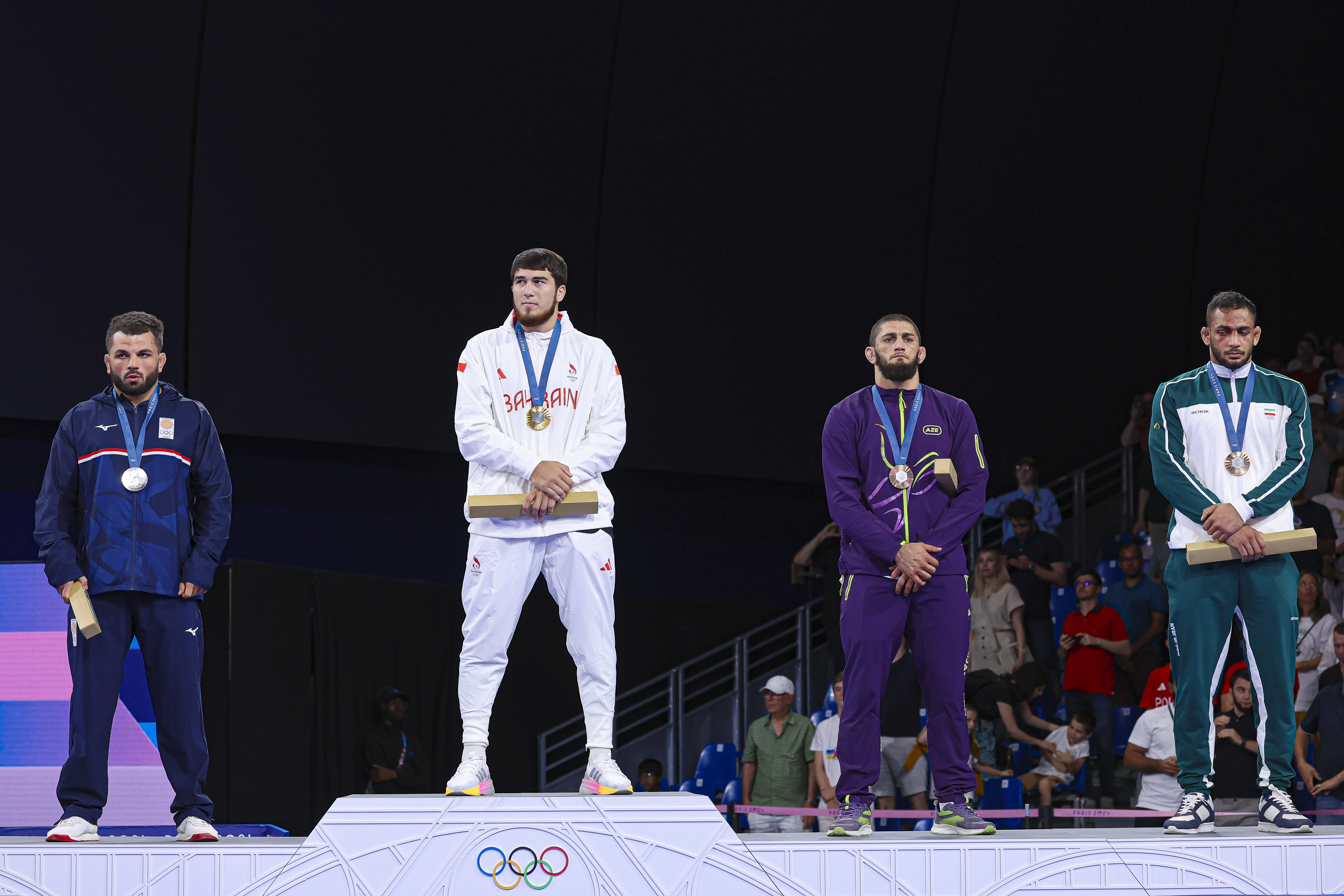


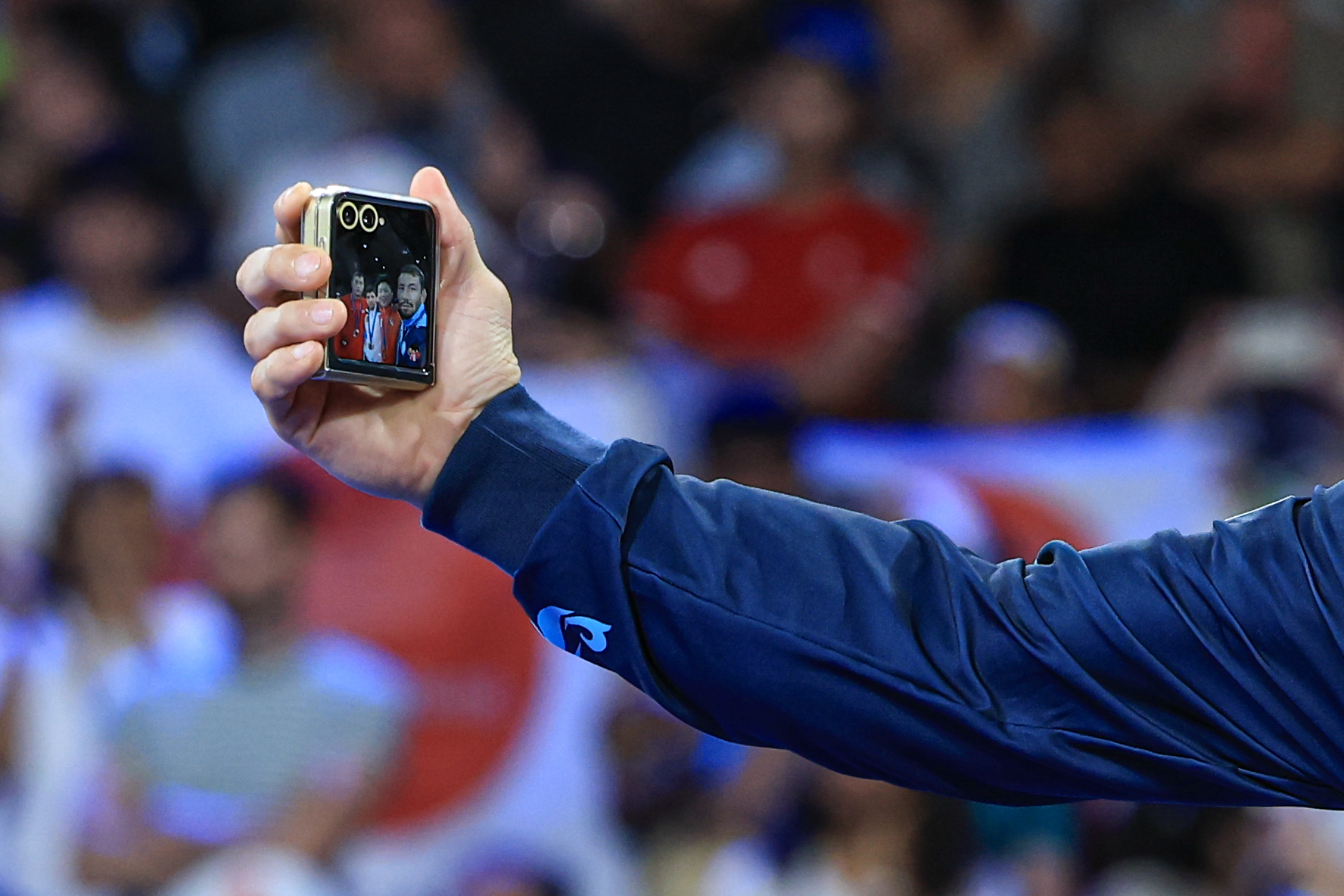
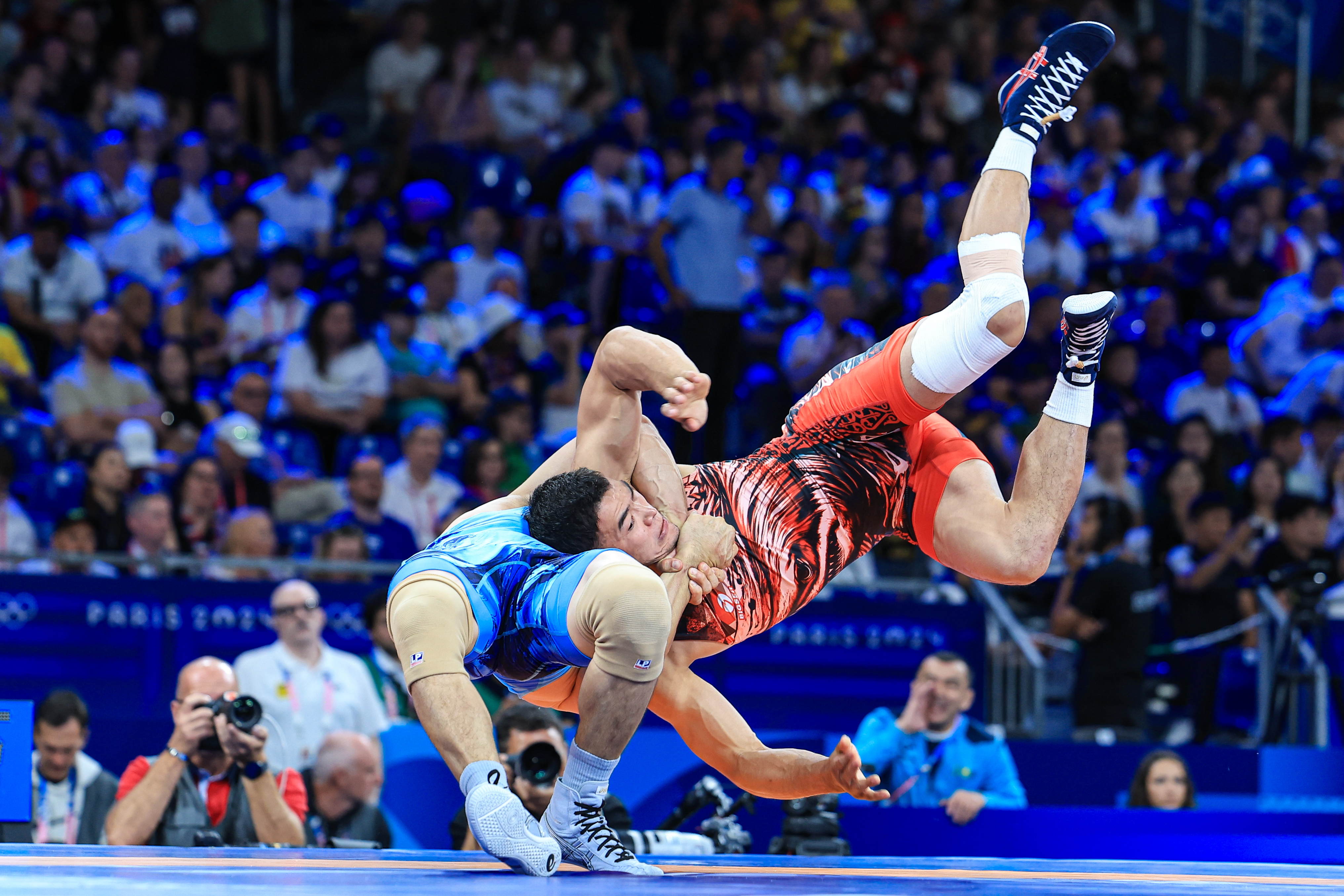

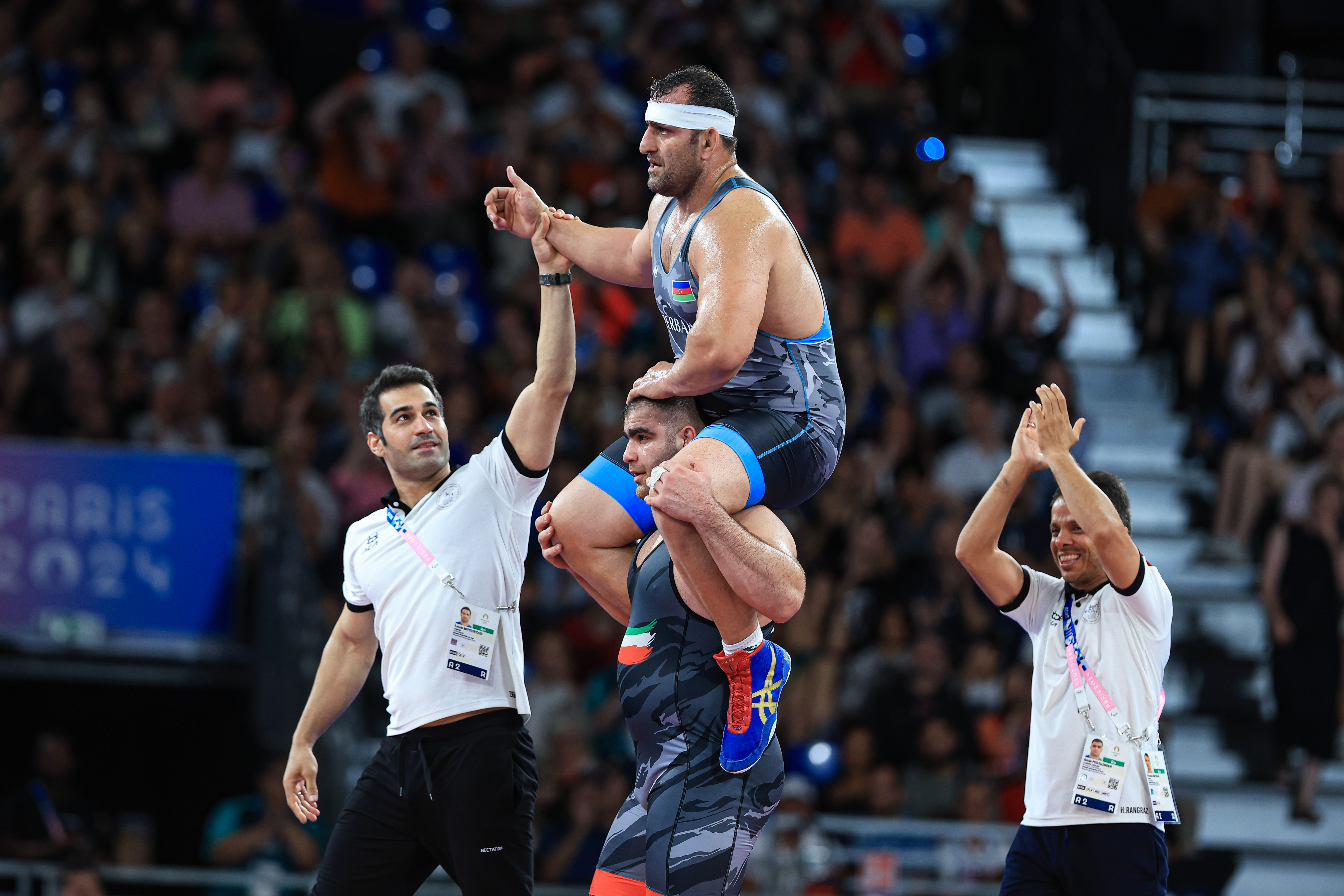


Share your thoughts.
Comments